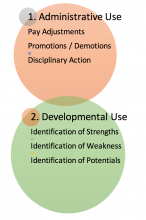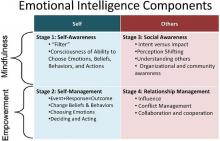Performance appraisals are used to assess an employee’s performance and provide a platform for feedback about past, current, and future performance expectations. Performance appraisal is variously called employee rating, employee evaluation, performance review, performance evaluation, or results appraisal. Performance appraisals are widely used for administering wages and salaries, giving performance feedback, and identifying individual employee strengths and weaknesses.




